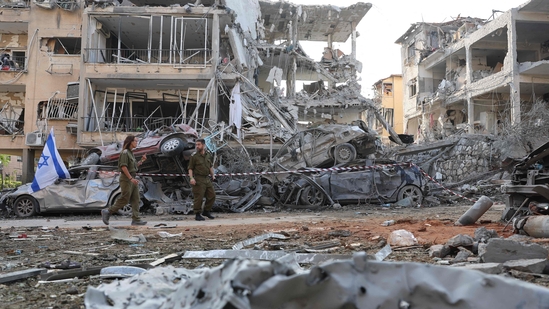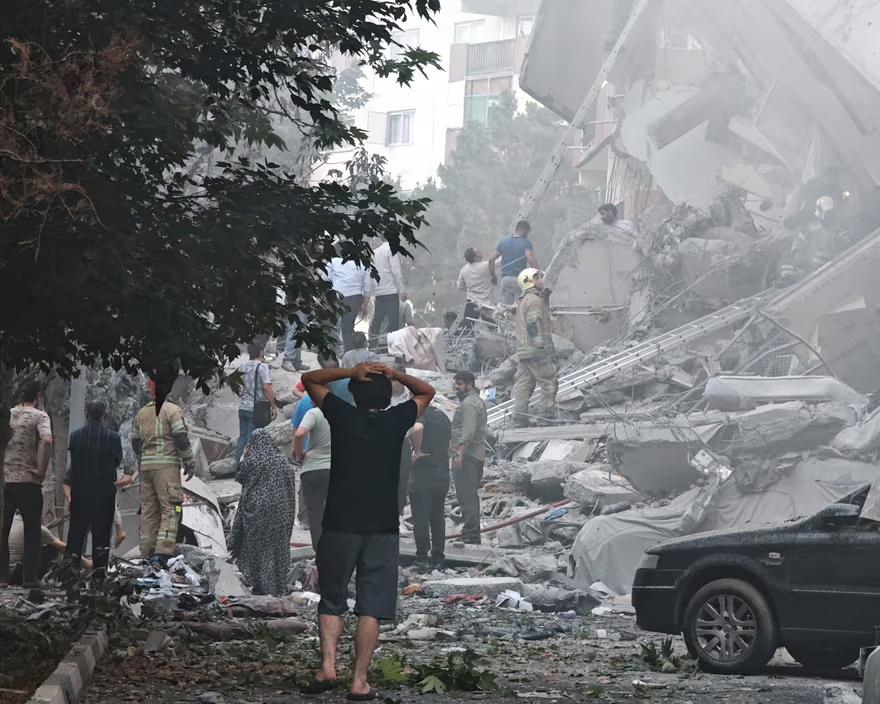Israel Strikes Hit Iran’s Nuclear and Military Sites
Tensions Soar as Israel Targets Key Iranian Nuclear and Military Facilities

A Night of Explosions: Israel Strikes Iran
In a dramatic escalation in the Middle East, Israel has launched a massive attack on Iran, striking dozens of targets overnight. The operation, which Israel says was necessary to stop Iran’s nuclear ambitions, included attacks on nuclear sites, military installations, and key leaders. The strikes have left both countries and the world on edge, as fears of a wider conflict grow.
What Happened During the Night?
According to Israel officials, the attack began late at night and continued into the early hours. Israel said it acted alone, without help from other countries, because it believes Iran has started building nuclear warheads. The Israeli military claims that 200 fighter jets took part in the operation, hitting about 100 targets across Iran.
The main focus of the attack was Iran’s nuclear program. Israel’s leaders have long said they will not allow Iran to build nuclear weapons, and this attack is their most serious action yet.

Which Sites Were Struck?
Nuclear Facilities Targeted
One of the most important targets was the Natanz nuclear enrichment facility. This site, partly above ground, is where Iran spins uranium gas in centrifuges to make fuel for its nuclear program. The International Atomic Energy Agency (IAEA) confirmed that Natanz was hit, but it is still unclear how much damage was done. Videos posted online show huge explosions and fires at the site.
The IAEA also said that other key nuclear sites—Fordow, Isfahan, and Bushehr—were not hit. These sites are important to Iran’s nuclear work, but for now, they seem to be safe.
Military Installations and Command Centers
Israel also targeted Iran’s military strength. Dozens of radar installations and surface-to-air missile launchers were destroyed, according to Israeli sources. In Tehran, the capital, several sites were hit, including the headquarters of the powerful Revolutionary Guards. This group is one of the most important parts of Iran’s military and government.
Security camera footage from Tehran showed explosions lighting up the night. After sunrise, the damage was clear—burned buildings, broken windows, and rescue teams working in the streets. High-rise buildings were damaged, and people gathered outside, shocked by the scale of the attack.

Loss of Key Figures
Iranian state media reported that several top military leaders were killed in the strikes. These include General Hossein Salami, the head of the Revolutionary Guards; Major General Mohammad Bagheri, the army chief of staff; and Major General Gholamali Rashid, commander of the Khatam al-Anbiya joint forces headquarters. In addition, six nuclear scientists were reported killed, including Fereydoun Abbasi, a former head of Iran’s Atomic Energy Organization.
How Did Iran React?
Iran responded quickly and forcefully. The country fired about 100 drones at Israel. Iran’s supreme leader, Ali Khamenei, promised “severe punishment” for the attack. Iraq said that more than 100 Iranian drones crossed its airspace, and Jordan reported that its air force and defense systems had to intercept several missiles and drones to protect its own territory.
The streets of Tehran were tense, with people worried about what would happen next. Many Iranians called for revenge, while others feared that more violence could follow.
“We will not let this aggression go unanswered. Our response will be swift and powerful,” said an Iranian government spokesman after the strikes.
What Is the Background to the Attack?
Israel’s Concerns
Israel has long been worried about Iran’s nuclear program. Israeli Prime Minister Benjamin Netanyahu said that Iran was not only enriching uranium for bombs but had also started building nuclear warheads. He said Israel had to act before it was too late.

The International Atomic Energy Agency (IAEA) recently ruled that Iran was breaking its promises under the nuclear non-proliferation treaty. The IAEA said Iran was not cooperating fully with inspections and had built up a stockpile of about 400 kilograms of highly enriched uranium. Western intelligence agencies have warned that Iran is close to having enough material for several bombs, although they believe Iran had not yet made the final decision to build one.
Diplomatic Efforts Under Threat
The timing of the attack is important. Just days before, the United States and Iran were supposed to meet in Oman for talks about Iran’s nuclear program. These talks were meant to find a peaceful solution and avoid war. But with bombs falling on Iranian soil, it is unclear if these talks will still happen.
Since 2018, when former US President Donald Trump pulled out of the international nuclear deal with Iran, the situation has become more dangerous. Iran has expanded its nuclear program, and trust between the two sides has broken down.
The Global Reaction
The world is watching the crisis closely. Many countries are calling for calm and warning that more violence could lead to a bigger war in the Middle East. The United Nations Security Council is expected to meet to discuss the situation.
Some Western countries have supported Israel’s right to defend itself but are worried about the risk of a full-scale conflict. Russia and China have called for restraint and said both sides should return to negotiations.
What’s Next?
No one knows exactly what will happen next. Iran’s leaders are under pressure to respond, but a bigger war would be risky for everyone. Israel has warned that it will keep acting if it believes Iran is building nuclear weapons.
The people of both countries are anxious. In Israel, some fear new missile attacks from Iran or its allies. In Iran, many worry about more airstrikes and the safety of their families.
The Human Cost
While leaders argue and armies fight, ordinary people suffer the most. In Tehran, families are dealing with damaged homes and lost loved ones. Hospitals are treating the wounded, and rescue teams are searching for survivors in the rubble. In Israel, people are preparing for possible drone or missile attacks.
Why This Matters
This attack is one of the most serious clashes between Israel and Iran in years. It shows how quickly things can get out of control when nuclear weapons are involved. The world is hoping that leaders will choose peace, but for now, the risk of war is high.
In Simple Terms
- Israel launched a major attack on Iran, hitting nuclear and military sites.
- The strikes killed several top Iranian generals and nuclear scientists.
- Iran responded by firing drones at Israel.
- The world is worried about a bigger war.
- Talks between the US and Iran are now in doubt.
Final Thoughts
The situation between Israel and Iran is very serious. The strikes on Iran’s nuclear and military sites have changed the balance in the region. Both countries are powerful, and if the fighting continues, it could affect the whole world. For now, everyone is waiting to see what will happen next, hoping that peace will win over war.
Stay woke. Stay tuned. Stay with AKEWE NEWS.




